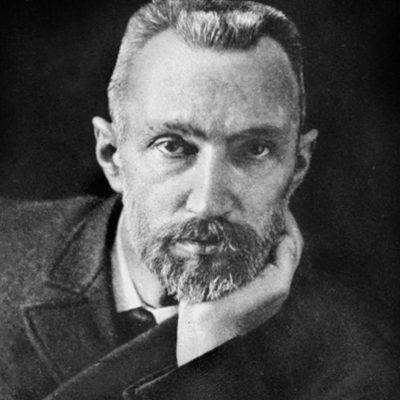Pierre Curie was a French physicist, physical chemist, and Nobel laureate. He was born in Paris on 15 may 1859, son of Eugene Curie and Sophie-Claire Depouilly Curie. Pierre’s father, a doctor, provided his early education. Pierre earned a math degree at age 16 and had completed the requirements for a higher degree by age 18. He could not immediately afford to pursue his doctorate, so he worked as a lab instructor. Most people are familiar with his wife’s accomplishments (Marie Curie), yet don’t realize the importance of Pierre’s work. He pioneered scientific research in the fields of magnetism, radioactivity, piezoelectricity, and crystallography. Here’s a brief biography of this famous scientist and a list of his most notable achievements. Pierre Curie and his wife Marie shared half the 1903 Nobel Prize in Physics with Henri Becquerel for their research into radiation. Pierre and Marie also discovered radium and polonium. He developed a scientific instrument called the Curie Scale so that he might take accurate data. He an his brother Jacques discovered the piezoelectric effect. The piezoelectric effect is where compressed crystals give off an electric field. In addition, Pierre and Jacques found crystals could deform when subjected to an electrical field. They invented the Piezoelectric Quartz Electrometer to aid in their investigations. Pierre Curie received the Davy Medal in 1903. He was awarded the Matteucci Medal in 1904 and the Elliot Cresson Medal in 1909 (posthumously). For his doctoral research, Pierre examined magnetism. He formulated a description of the relationship between temperature and magnetism that became known as Curie’s law, which uses a constant known as the Curie constant. He found there was a critical temperature above which ferromagnetic materials lose their behavior. That transition temperature is known as the Curie point. Pierre’s magnetism research is considered among his greatest contributions to science. Pierre and his student were the first to discover nuclear energy from heat emitted by radium. He observed radioactive particles might carry a positive, negative, or neutral charge. Pierre Curie was a brilliant physicist. He is considered one of the founders of the field of modern physics.

Pierre Curie
94400login-checkPierre Curie